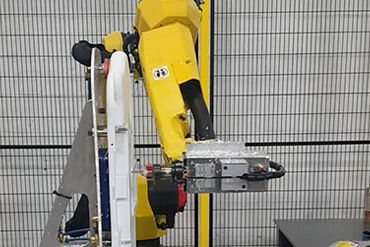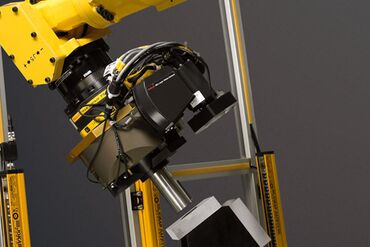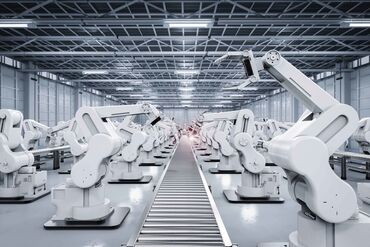Modular cells allow adaptability for manufacturing
Aug 18, 2013
Modular workcells are easy to integrate and able to be moved around and changed for a variety of different applications and production lines. Modular workcells can be stacked in different ways to optimize production.

Workcells allow for leaner, more concise manufacturing, giving companies the ability to use fewer robots and workers to perform more applications. Going a step further in that logic, manufacturers who use modular cells are able to operate via plug and play, and can be changed as necessary.
When designing manufacturing systems, they are usually engineered to perform certain tasks or make a certain product. As product lines are discontinued or products change, manufacturers need to have modular work cells that can adapt to the changes in the factory without increasing downtime with resetting and reprogramming the entire line.
By using these modular workcells, which are mobile for easier integration into a workspace, the production line can be changed if necessary. Think of a group of modular cells like building blocks for production. They may work well “stacked” one way for this product, but once the product is changed or enhanced, the modulated cells may need to be stacked a different way to optimize productivity.
If these cells were fixed, instead of modular, manufacturers would have to continually have to reinvest in equipment every few years. With the right care, and modularization, these cells can still be working day in and day out for 20+ years, cutting down on production costs and labor costs for the manufacturer.
Using hyper-modular cells makes production line configuration easier for manufacturers, despite the changes in their products over the coming decades.
Robots.com, a certified integrator of modular work cells from several companies, including Fanuc, Motoman, ABB, Universal Robots, and KUKA, can build work cells that are fixed or modular, depending on the needs of the customer. If your industry has a high turnover, our staff can engineer a modular cell that will have the adaptability necessary to keep you in the game with your competitive market.
For more information on automating your facility with modular cells, contact Robots.com today online or at 877−762−6881.
Related Articles
You might be also interested in:

- Featured
Latest Advancements in Material Cutting Robotics
Read about the latest technological advancements in robotic material cutting.

- Featured
Emerging 3D Vision Technologies for Industrial Robots
Learn about the emerging 3D vision technology that businesses are using for industrial robot applications.

- Featured
Most Popular Industrial Robotic Applications for 2021 and Projections
Explore the most popular application trends of 2021 and what to expect in the future.
Let's talk!
Request your quick quote today.
